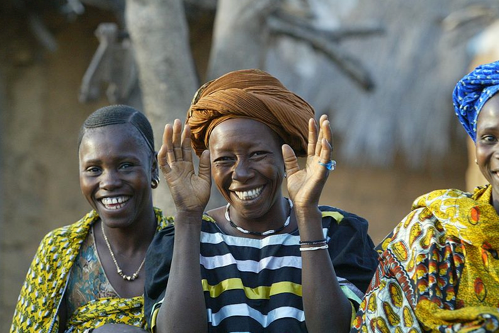
The genocide that ripped up Rwanda nearly 20 years ago left thousands of African women to become widows facing an uncertain future. Their subservient role in society did not allow them to inherit property from their husbands, giving them a tough time in holding up their responsibilities for their children. But recent developments have become favorable when in September, Rwandan people gave their vote of confidence to African women. Today, 64% of parliamentary seats belong to women.
Traces of genocide
Rwanda has recovered since the fatal killings brought by internal political conflicts took place in 1994. Until now the marks of the mass murders are evident in the Kigali parliamentary building. The walls pierced by raging bullets still bear the holes from the bloody encounter that lasted three months, reminding the nation of the pandemonium that claimed many lives. Yet the brunt of the devastation was not on destroyed properties but on the people, particularly the widowed women who numbered almost 50,000.
Rising nation
From out of the ruins of its brutal history, Rwanda is now rising as a stronger nation, perhaps more fortified by its horrific background. And amidst this development the women are taking the center stage, playing major roles in the redemption of their country. At the Ministry of Gender and Women in Development, an official named John Mutamba said that men who have gone through exile understand how it is to be discriminated against. He pointed out that gender is part of the nation’s political mindset, but because Rwandan people know what it means to be ostracized, they are now beginning to appreciate all members of the population. Therefore social and gender divides have begun to crumble to forge equal rights for everyone, Mutamba said.
Post-genocide constitution
After the genocide, the country’s constitution placed a 30% female occupancy requirement in the parliament. Five years ago, Rwanda became the first nation in the world to have women parliamentary members with majority number. Lately in September, women took another step forward with 26 more females elected, supplementing the 24 reserved seats for women, widows, genocide survivors and farmers. The reserved seats are also open to former rebels.
Policy changes
With more women in Rwanda’s parliamentary government, many policy changes have been taking place, leading to progress. The women legislators took active part in the family bill draft in which Rwandan women finally get the right to inherit. In the past, husbands owned the house. In the event of their death, the woman’s in-laws inherit the house. This has now changed. Women can already inherit and own property. Both male and female children have likewise been given equal inheritance rights.
More positive changes
More developments have been taking place and improvement in the people’s lives is clearly shaping out. For the last decade, the average life expectancy has gone up by 10 years and infant deaths decreased from 1,071 deaths for every 100,000 births to 476. In 2012 the World Health Organization Annual Assembly commended Rwanda for the lower maternal mortality figures that has been cut by more than half. These astounding changes coming one after the other in Rwanda are mostly owed to the women leaders who have emerged to become tools in moving the country forward to prosperity.
Photo Credit: African Women















Facebook
Twitter
Pinterest
Google+
LinkedIn
Email